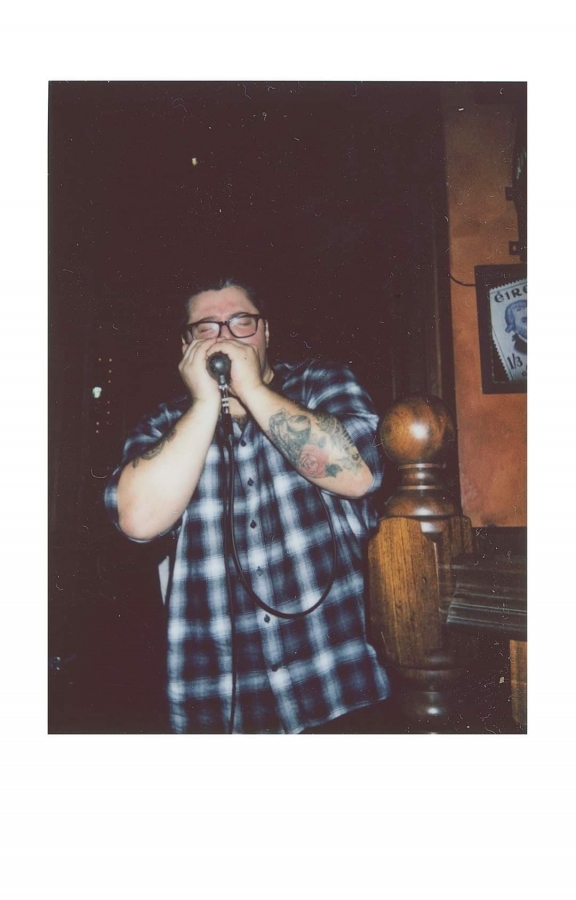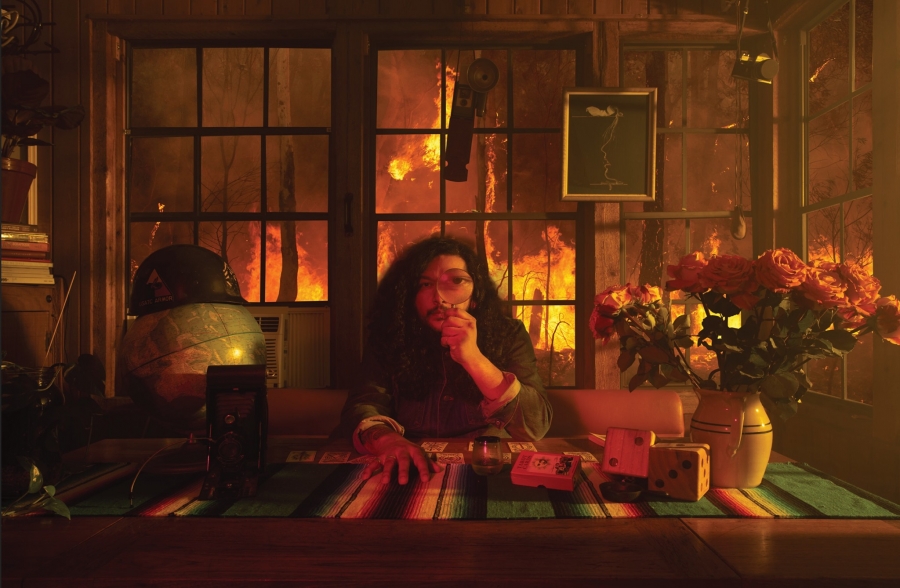More so than any other Austin musician, More Eaze (solo project of Mari Maurice) effortlessly navigates the contemporary experimental music landscape. More Eaze is a prolific anti-composer whose unending stream of bafflingly diverse releases over the years has explored the fluidity between seemingly contradictory elements—primarily pop, minimalism and noise. In addition to her impressive solo oeuvre, she is a familiar face in the Orange Milk Records extended universe who also works in various capacities as a producer/multi-instrumentalist with a multitude of other artists: Claire Rousay, Fibril, The Octopus Project, Slomo Drags and Thor & Friends, just to name a few.
Keeping track of More Eaze lore can be intimidating, but lucky for you, “yearn” is her most soothing album in recent memory and is an excellent introduction to the more pastoral side of her unquestionably unique sound. Whereas last year’s “Mari” was a confessional epic, channeling influences as disparate as 100 gecs and Robert Ashley, “yearn” provides a concise set of ethereal soundscapes that are as melancholically comfy as the album title suggests. This is music for rainy days and dog walks, vulnerability and contemplation, maybe for when you’re a little worried about everything, but not anxious about much. It’s very pretty.
While each track is distinct enough to stand out individually, they function more so as movements of a broader composition. The first track “galv” begins with a subtle room tone reminiscent of the audio quality of an iPhone memo. A modulated synth warbles into the mix and is soon interpolated by hushed autotune whispers, then accompanied by gentle synth pad arpeggios throughout the latter half of the track. Delicate kalimba plucks on “in dreams” lay a new age-y groundwork for understated electroacoustics and deceptively complex synth counterpoint, and the captivating “priority” features ambient artist Ben Bondy, whose synth washes and wistful vocal harmonies beautifully compliment More Eaze’s American primitivist acoustic guitar stylings.
The aptly titled “leave” serves as “yearn”’s clear-headed conclusion. On this track, More Eaze’s signature autotuned vocals carry the same gravitas as some of Frank Ocean’s most sensitive moments, and her masterful violin drones are as cinematic as something you might hear in the iconic film scores of a later Paul Thomas Anderson movie. However as soon as you’ve become fully immersed in these rich textures, an aquatic field recording takes over and you suddenly realize that you’ve been submerged the whole time. Another spacial pivot, and you are now eavesdropping on a domestic scene as dishes and silverware clank from across the room. Mari can be heard asking someone, presumably her partner (who illustrated the lovely album art), “do you want a cherry?” to a muffled reply. I think they’re making cocktails. It’s a deeply charming moment which almost makes you forget how fearful of playfulness most “Art Music” can be, and it acts as an effective transition for the listener back into the world of everyday life.
Chicago’s Lillerne Tapes released “yearn” on Bandcamp Friday, a monthly event which gives artists the opportunity to receive 100% of proceeds from album purchases. While this is a very welcome practice, it’s ultimately a small consolation for musicians whose industry is systematically dominated by the value-sucking poverty royalties of Spotify. It’s an industry crisis and, without glossing over it or downplaying the enormity of this broader social situation, More Eaze’s music chooses to channel a monastic aura, suggesting a less alienated world where artistic practice is allowed to explore itself more freely. “yearn” is a simple release, but it’s an important moment in a thrilling career.
– Blake Robbins











